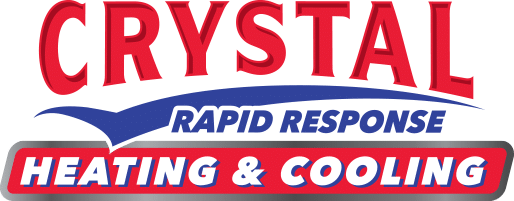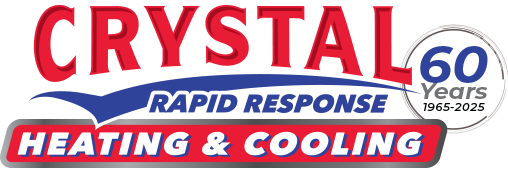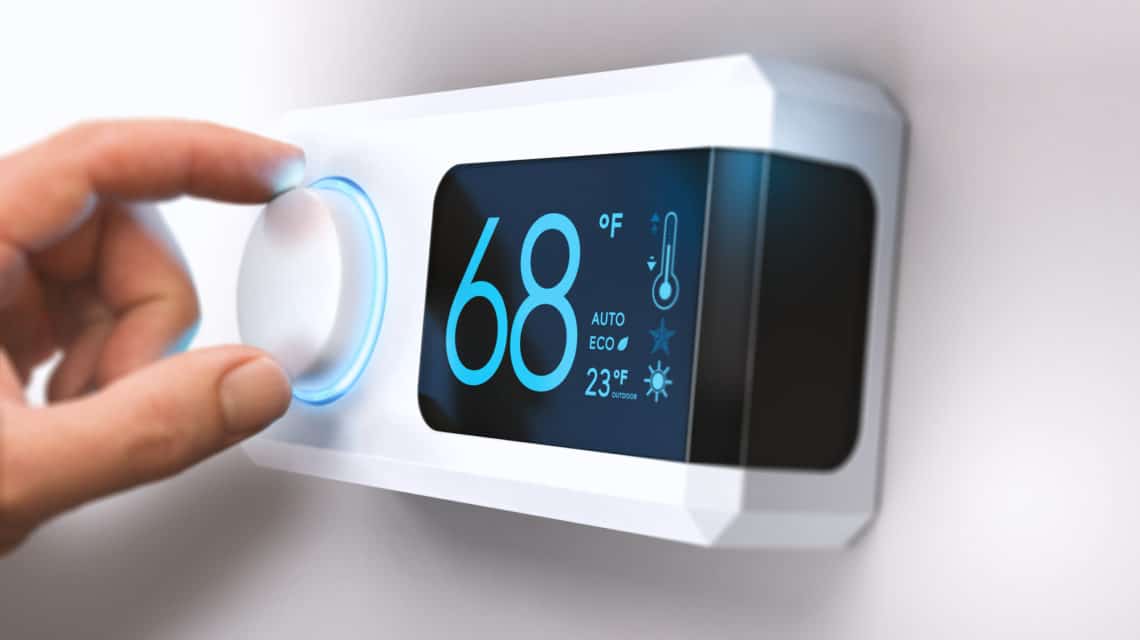We've all experienced the perfect Sunday morning. You climb out of bed and take your morning stretch. You joyously head downstairs, where the sun is beaming in on you, and you enjoy your morning beverage of choice. On the other hand, we've also all taken that cringe-worthy first step onto the cold tile floor on a chilly morning.
The one that just about sends us running back to the comforting warmth of our bed. What if you never had to deal with this inconvenience again? What if you could wire your house to make every morning perfect?
This is what an HVAC zoning system is designed for. With an HVAC zoning system, you never have to step foot onto a cold spot in your home again. This system will ensure that the most lived-in parts of your home are kept at the ideal temperature for you and your family.
From improving your quality of life to helping maintain the effectiveness of your furnace and air conditioner, there are many reasons to consider an HVAC zoning system.
Read on to learn about the benefits you can gain from installing an HVAC zoning system in your home.
Table of Contents
- Improve Your Quality of Life
- Fix Common Problem Areas
- Save Money
- So How Exactly Does An HVAC Zoning System Work?
- Improve Your Home's Air Quality
- Extend the Life of Your HVAC Zoning System
- What Are You Waiting For?
- Frequently Asked Questions
Improve Your Quality of Life
Are you tired of waking up in the middle of the night dripping sweat? Are you sick of having to shake yourself awake, climb out of bed, and go all the way to the front hallway to bump up the AC?
Maybe it's the thermostat wars with your significant other, children, or the dreaded roommate. You prefer to enjoy the living room at a comfortable 68 degrees, yet every time you come home, they have the whole house set to 75.
Or the biggie: the seasonal adjustments to your ductwork. Poking your head up into the rafters in the basement while trying to find the right levers to adjust the airflow every spring and fall, knowing this only makes a minimal difference to the actual airflow in the end anyways.
In the past, technology has improved our daily lives through computers, phones, and even appliances for cooking and washing our linens. We tend to jump right on these technologies and take full advantage.
When it comes to a need as basic as temperature regulation, it seems all too simple a decision to take full advantage of the available technology to keep us comfortable, healthy, and happy in our own homes.
Zoning is an easy solution that allows your life to become straightforward. A zoned heating and cooling system can reduce total energy use and cost while precisely controlling the temperature in each zone, all with the added convenience of possible multiple thermometers throughout the home if desired.
Fix Common Problem Areas

At this point, you're probably thinking:
"It sounds like a convenient technology. But do I NEED it?"
The answer is yes, you probably do! Most households have problem zones that present hot or cold spots based on location, insulation, or design.
Rooms typically become problem areas due to their location in your home. Common rooms that present issues with hot and cold spots can include the basement and attic. Rooms near an entryway or next to the garage, such as a laundry room or foyer, may have issues regulating their temperature as well.
Homes that get the most out of HVAC zoning include:
- Multi-story homes
- Homes with basements, both finished and unfinished
- Homes with living space in the attic
- Homes with high ceilings
- Large floor plan homes with multiple wings
A zone's ability to hold heat or cold air can also depend on design choices while building your house. Designs that lead to problem areas include cathedral ceilings (high ceilings) and rooms with a lot of large windows, such as sunrooms, lofts, or living rooms with a large bay window.
Another factor in keeping a zone's temperature under control is the appliances within that zone. Heat-producing units such as stoves and fireplaces will throw off the entire household temperature on a standard HVAC system. With a zoned system, the kitchen or living room can be regulated separately from the other living areas to eliminate this problem. For example, suppose you are using the oven for an extended period. In that case, you can lower the temperature in the kitchen to keep the area comfortable even when the oven is on.
Do any of these scenarios sound familiar to your household? Then not only would an HVAC zoning system improve the quality and convenience of your life. It will also allow you to regulate your energy use and the number on your monthly utility bill by addressing these problems!
Save Money

Installing a zoned HVAC system can help save you money every month. Where do these savings come from?
A typical furnace or air conditioning unit works to create a controlled climate throughout the entirety of your household. However, as we discussed in the previous section, not all zones need the same attention. And this goes beyond the design and location of the zone.
The amount of use a zone gets is an essential factor as well. Turning off the ac to the upstairs bedrooms during the day while nobody is up there. Also, cutting off heat flow to a guest room or den that is not in use can significantly affect your utility bill. An HVAC system that isn't zoned is like having all the lights turn on in your home by flipping the light switch in just one room. The energy used for your unoccupied rooms is wasted.
According to the Department of Energy, heating and cooling make up 40 percent of a household's utility bill. By utilizing a zoned HVAC system, you can cut that bill down by 30 percent! This means a properly designed system will pay for itself over time through energy savings.
So How Exactly Does An HVAC Zoning System Work?
A zoning system HVAC is a single HVAC system serving two or more zones rather than having two separate HVAC systems.
When you want to increase the temperature in one of the two zones, you simply go to that area's thermostat and turn up the heat to the desired temperature. There is also an option to have a zoning panel that can control up to four cooling and heating zones in the house. It will kick-start your system, pumping out either hot or cool air. However, it doesn't just send this air aimlessly down every duct in your house.
Dampers installed at the opening of the duct leading to each zone regulate the airflow. The damper to the room you are trying to heat will open, allowing hot air to blow through the vent. The vent may partially or fully open, depending on what the system decides is the appropriate amount of airflow. All other lines will close, making the most efficient use of the airflow produced.
Once the zone has reached optimal temperature, the system shuts itself off until needed. Therefore, you are only paying to heat or cool the necessary zones meaning that you will require less use from your furnace and air conditioner.
It is important to note that a poorly designed zoning system can waste all the potential energy efficiency that it is supposed to provide. Often, homeowners assume that they can set up the system themselves. This is most often not the case. An experienced HVAC system designer can help you determine your comfort zone of heating and cooling while ensuring the system runs at a lower capacity to reduce energy use.
The zoned HVAC system allows you to conserve energy and finances at just the click of a button on your thermostat.
Improve Your Home's Air Quality
You may even notice an improvement in your health after installing your zoned HVAC system!
By segregating your home into zones, you are reducing the circulation of dust, dirt, and other allergens and contaminants from room to room. This may help individuals who suffer from allergies, respiratory problems, skin conditions, itchy eyes, asthma, and other health conditions.
An important example of this would be a home with mold in the basement.
You may be thinking this doesn't apply to you. Yet, shockingly, it is estimated that 70 percent of households do have mold in the basement By reducing the airflow to these areas to only the necessary amount, you can effectively decrease the number of spores being circulated in the air.
Less serious yet common examples include reducing the amount of pet dander being blown from the living areas to the bedrooms and slowing the movement of dust out of rooms that aren't used and cleaned as frequently into the major household zones.
By reducing the mix of allergens and contaminants in your home, you can increase your control over the quality of the air you live in and breathe every day. This is a huge bonus to everyone, especially those already prone to health conditions.
Extend the Life of Your HVAC Zoning System

Zoned heating and cooling allows your furnace and air conditioning unit to work more efficiently. They no longer need to work as a powerhouse to cycle air to every nook and cranny in your home, resulting in less run time.
Without zoning, each part of the home gets the same amount of airflow, and the system runs at 100% capacity whenever air is needed. Systems with two stages can run at a lower capacity when the need for airflow in specific zones is decreased.
This means you can extend the life of your HVAC system. Not only does this work for new system installation, but it also allows you to add years to the life of your existing system by tacking on zoning technology.
Typical zoned air conditioning and heating systems pay for themselves in roughly two to four years. Considering HVAC systems last on average fifteen to twenty years, this is a worthy one-time investment to green up your house, free up your wallet, and simplify your life.
What Are You Waiting For?
A simple, long-lasting system that will enhance your health and wealth and make your daily life a little more pleasant is a no-brainer decision! Let the latest HVAC technology make your life better.
Request a free consultation with Crystal Heating and Cooling to learn about adding an HVAC zoning system to your home today!
FAQ on HVAC zoning
What Is a Two Zone HVAC System?
Zoning is a way to control your HVAC system better to manage your home's airflow for heating and cooling. A two-zone HVAC system uses two sensors, thermostats, and dampers to control your home's airflow and temperature in different sections, or "zones",.
Having more than two zones with an HVAC zoning system is also possible. With more than two zones, you can have the option of multiple thermostats or a central control panel that controls the thermostats of up to four zones.
What Are Zones in HVAC?
An HVAC zone is a section of your home where you can control the airflow of cool or warm air to efficiently manage the temperature. Having two or more zones within your home is ideal for comfortable and energy-efficient heating and cooling.
What Is Zone Heating?
A zoned heating system allows better control over the heat distribution within your home. You can turn up the heat in the occupied rooms without wasting the energy it takes to heat the whole house to the same temperature.
Why Is Zoning Needed in an Air Conditioning System?
If your home is prone to hot spots and the air conditioning can't keep up with the summer heat, you need a zoned air conditioning system.
A zoning system gives you more control over the comfort level in your home as well as the energy consumption that is used by your HVAC system. There is no need to cool the whole house to 70 degrees when you only hang out in the living room or owner's suite.
A zoned air conditioner system can also extend the life of your HVAC system because the unit will not have to constantly work at 100% to keep up.
Is It Better to Have Two AC Units or One?
This depends on how your home is built and how the HVAC system was set up during construction. Often, two-story homes can benefit from two air conditioning systems to help regulate the temperature on both floors.
However, an HVAC zoning system could also regulate the temperature using less energy. The best way to decide what will work for your home is to consult with an HVAC specialist. They will be able to give you the best solution for what your home needs.
HVAC Coupons
Looking for HVAC coupons to save on your next A/C unit or even furnace?
HVAC Maintenance Plan
Want two preventative maintenance visits per year AND VIP treatment on any repair service?




